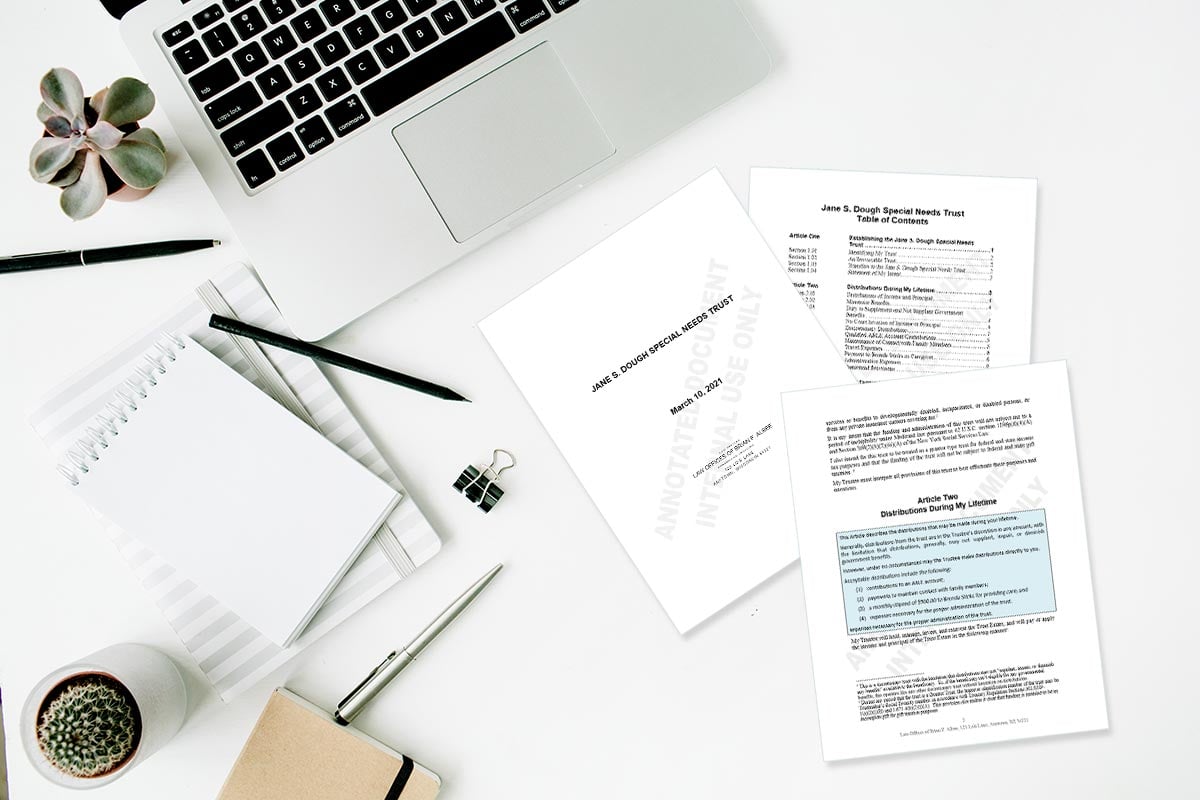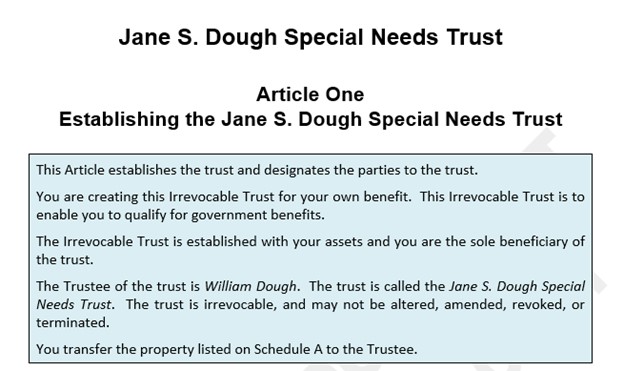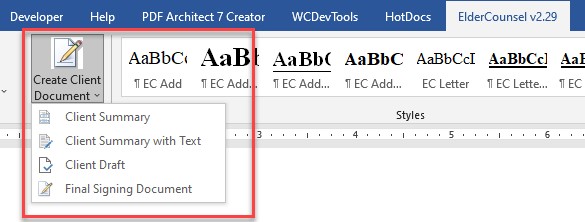
Elder Docx™ has always had the ability to draft a Self-Settled Special Needs Trust, but with our recent software update, you can now draft an annotated version!
The Self-Settled Special Needs Trust, often referred to as a d4A trust, is a first-party trust; meaning, the assets used to fund the trust belong to the beneficiary. This trust allows the beneficiary to have these funds set aside to pay for certain things that government benefits don’t provide for, while still allowing the beneficiary to maintain eligibility for public benefits.
Elder Docx also has an option to draft an annotated Self-Settled MSA trust. This trust is used when a Medicare Set-Aside subtrust is needed, which is often when the beneficiary is awarded a personal injury settlement or a Workers Compensation award. The amount of the award that should be set aside for future medical expenses related to the injury are funded into the MSA subtrust to be preserved for such use.
What are the benefits of an annotated document?
An annotated document contains legal-technical footnotes explaining various provisions of the document. This will help you better understand why a provision is included or what exactly it means. Some footnotes reference the legal authority for the provision, such as a federal code citation, state law citation, or reference to a specific provision of the Program Operations Manual System of the Social Security Administration.
An annotated document also includes a client summary box at the beginning of each article that explains in plain terms what that article means. This will help the client better understand the document.
Here is an example of a client summary box:
 Once you have fully reviewed the document and you are ready to present it to your client, use the “Create Client Document” command on the WealthCounsel ribbon in Word. This will enable you to create (and optionally save) various permutations of the document for your client to review or sign.
Once you have fully reviewed the document and you are ready to present it to your client, use the “Create Client Document” command on the WealthCounsel ribbon in Word. This will enable you to create (and optionally save) various permutations of the document for your client to review or sign.

- Client Summary is a summary document consisting of no body text or footnotes—it includes only article headings with client summaries beneath each one, describing the article’s purpose.
- Client Summary with Text includes the full text of the document, along with a summary box for each article describing the article’s purpose, but with the footnotes removed.
- Client Draft includes the full text of the document, but with all annotations (client summaries and footnotes) removed. This is the draft version of the document, as indicated by a “DRAFT” watermark appearing each page.
- Final Signing Document is the final version of the document, and the one that will be signed by your client. All annotations (client summaries and footnotes) are removed.
Several of our documents offer an annotated drafting option, including our Standalone Will, Revocable Living Trust, Medicaid Asset Protection Trust, Medicaid Family Protection Trust, Veterans Asset Protection Trust, Secure Supplemental Needs Trust, Parental Protection Trust, Third-Party Supplemental Needs Trust and Nonstatutory Power of Attorney.
Contact us today to see Elder Docx in action.



